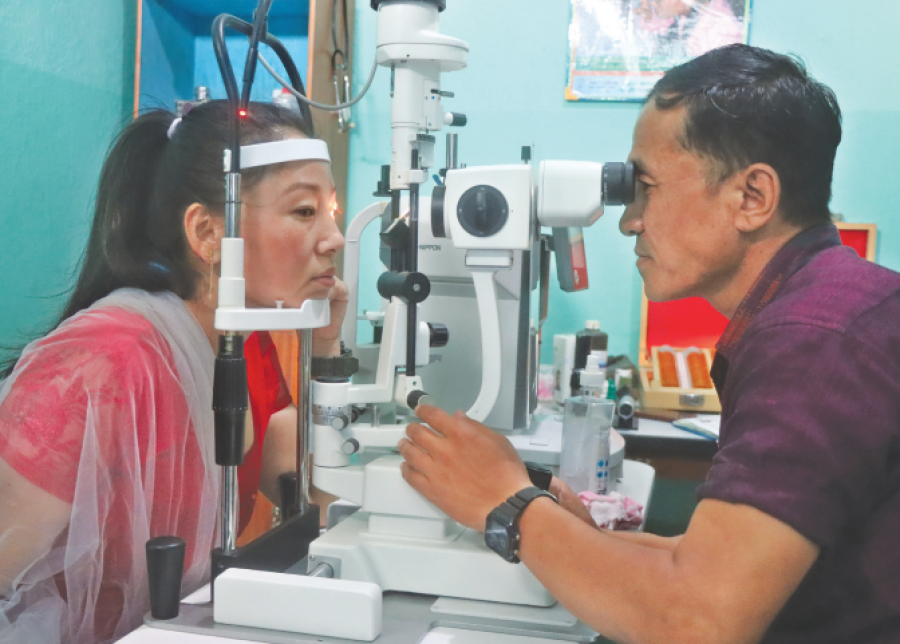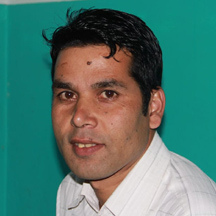Koshi Province
Taplejung sees a big surge in conjunctivitis
The only two eye treatment centres in the district are seeing dozens of patients with the infection daily.
Ananda Gautam
Conjunctivitis cases were not unusual in the district, especially in the rural areas, during the monsoon season every year. However, there has been an unusual rise in conjunctivitis cases in the last few days due to heavy, incessant rains, flooding, and increased moisture.
There are only two eye treatment centres in the district that are run by Nepal Netra Jyoti Sangh. One is located at Dechan Dongala Eye Care Centre in Phungling Municipality, the headquarters of Taplejung, and another at Dobhan Eye Care Centre in Dobhan Bazar, in Meringden Rural Municipality.
Kaji Gurung, in charge of the Dechan Dongala Eye Care Centre, said that for the last few days, around 25 to 30 people with conjunctivitis infection have been visiting the centre daily.
"This disease is more common during the months of March, April, July, and August due to a rise in humidity and contamination of water. Since a lot of bacteria and viruses thrive in this season, cases are rising unexpectedly. It generally affects children more than adults and also people with low immunity, as they are the most vulnerable," said Gurung.
According to Gurung, conjunctivitis is a communicable disease that causes inflammation of the conjunctiva, which is the thin layer of tissue on the inside of the eyelids. It can be caused by a viral or bacterial infection. Viral infections typically have a watery discharge, while bacterial infections have a yellowish discharge. Similarly, there are also allergic, toxic, and nonspecific types of conjunctivitis. It is also commonly known as eye flu or pink eye.
"Currently, only patients within the headquarters area are visiting the centre, and according to our sources, this infection is spreading rapidly in the rural areas of the district as there are no dedicated eye care centres," said Gurung.
According to Kaji Thebe, an ophthalmologist at the Dobhan Eye Care Centre, this usually lasts for a week, and even then, if not cured, further infection may occur and damage parts of the eyes permanently. The symptoms of conjunctivitis are a pink or red colour in the white of the eyes, swelling of the insides and outsides of the eyes, and a continued urge to rub the eye with a heavy increase in tear production. Also, illness, including a runny nose, cough, sore throat, and fever, among other things, can also be seen after being infected by this disease.
Thebe said that around 10 to 20 patients visited the centre daily in the past three days, and numbers are increasing day by day after patients in rural areas started getting infected with the disease.
"Cross-infection can still occur until one week after the disease is cured in one person. One should pay special attention to cleanliness after seeing this infection. Infected people should always wash their eyes with clean water, avoid any kind of physical contact with others, and only clean their eyes using clean handkerchiefs," said Thebe.
Meanwhile, the number of conjunctivitis patients is growing in various local units of West Nawalparasi. According to Binod Neeta Kandel Eye Hospital, which is located at Parasi Bazar, more than 100 patients visit the hospital daily, and for the last couple of days, more than 40 percent of them had conjunctivitis.




 18.12°C Kathmandu
18.12°C Kathmandu












